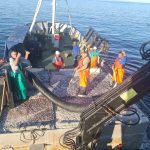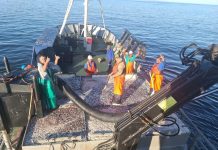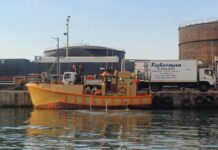Across the world’s oceans, there are places especially abundant in nutrients and life. They cover around 1% of the ocean but produce a disproportionate amount of fish: 20% of global marine fish catches. The southern Benguela Upwelling System is one such place. But it tends to unpredictable severe low-oxygen conditions, which are life-threatening to sea creatures and livelihood-threatening to local people. Researchers at UCT and their collaborators are figuring out what’s causing these conditions and how to manage them.
Most Popular
New Leader for SAMSA
The South African Maritime Safety Authority’s (SAMSA) has announced the appointment of Captain Dennis Mqadi as its new Chief Executive Officer, effective 1 November,...
A Mixed Bag at CCAMLR but No Decision on Antarctic Measures
The Commission for the Conservation of Antarctic Marine Living Resources (CCAMLR) seems uncomfortable to take strident and decisive steps to protect the Antarctic Peninsula...
Appeal Decisions for Small Pelagics Sector to be Set Aside Again
The Minister of Forestry, Fisheries and the Environment, Dr Dion George, has decided to ask the Western Cape High Court to set aside the...
Shark Protection Stepped Up
The only remaining demersal shark longline vessel has had to face the wrath of the South African authorities after having been found to have...

















